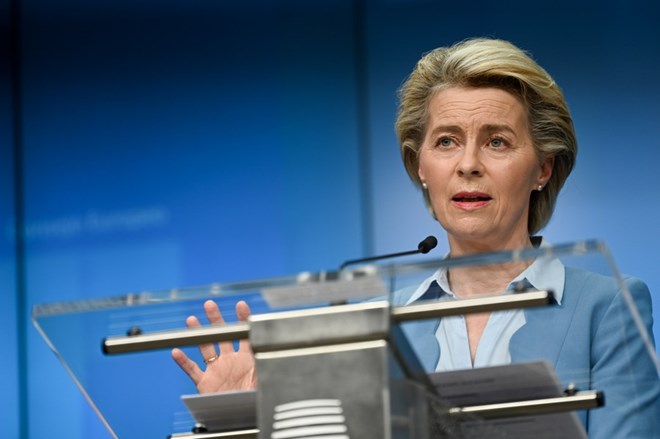According to Politico, the European Union (EU) is said to be divided as it discusses the fate of about 200 billion euros (209 billion USD) of assets under Russian sovereignty.
This amount is mainly held at Euroclear - a financial company based in Brussels ( Belgian). Money has been frozen since the outbreak of the Ukrainian conflict in February 2022.
After Brussels was left out of peace talks between Russia and the US in Saudi Arabia earlier this month, several EU member states have begun calling for Moscow to immediately transfer its frozen assets to Kiev.
Meanwhile, others argue that the assets should be kept as a tool even in future negotiations with Russia.
those who support the seizure of Russian assets include Poland, the Czech Republic, countries in the Baltic region, Northern Europe and the EU's senior foreign policy representative Kaja Kallas.
The group argues that the frozen money should be used to help Ukraine rebuild and maintain defense capabilities, especially in the context of Washington possibly stopping supporting Kiev.
Kallas has previously suggested that Russian money should be used to rebuild Ukraine before returning it to Moscow, saying it would "not be left".

However, other EU countries including France, Germany, Italy, Spain and European Commission President Ursula von der Leyen said that these assets should be retained as leverage in negotiations.
Some officials also expressed concern that the complete seizure of Russian assets could create a dangerous precedent and scare international investors.
Russia has repeatedly condemned the act of freezing its assets and warned that the seizure of this amount would be equivalent to an act of appropriation.
The Kremlin stressed that any attempt to transfer the money to Ukraine would lead to serious economic and legal consequences for the EU, including retaliatory measures that could target income from Western assets frozen in Russia.











